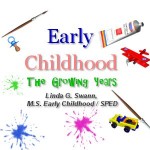Engage Children’s Brains During Summer
 Teachers spend the first four to eight weeks every fall reviewing and reteaching material that students have forgotten during the summer break. Some students actually lose reading and math skills during the summer. Research has proven that students who continue to learn during the summer, score better on standardized tests than peers, who do not extend learning into the summer vacation months. This can have a long-term effect in school achievement.
Teachers spend the first four to eight weeks every fall reviewing and reteaching material that students have forgotten during the summer break. Some students actually lose reading and math skills during the summer. Research has proven that students who continue to learn during the summer, score better on standardized tests than peers, who do not extend learning into the summer vacation months. This can have a long-term effect in school achievement.
Summer learning experiences should not mimic school work. Instead, it should be a time of “discovery”, exploring the world around them. It is a great time for your child to learn, that learning can… and should… be fun! Should you plan every day and minuet of summer vacation? Absolutely not, but you should have several options available for your child to select from. The options should be “open ended” activities that allow the child to be creative and venture out, creating their own “fun”.
Practicing math skills can be fun… if done in the right way. Certainly, no worksheets or math books would intrigue any child during the summer. But, how about using the family vacation as a tool to review math? Involve your child in planning the trip. Estimate how much money will be needed for gas (how many gallons of gas it will take to get there and estimate the cost), rental costs, costs of tourist attractions, food and vacation spending allowances. Map practice (find interesting things along the way), is also a brain booster. If you are flying or traveling by train, check travel schedules and costs. Use books and the internet to research your destination. Look up information about the state you will visit, as well as states you will travel through. Younger children can do bits and pieces… with your help.
How about growing a garden? This can be done in pots, taking up very little space. Grow flowers, vegetables or herbs, whatever your child is interested in growing. The key to engaging the brain is to research the plant, determining how to plant, water, feed and harvest, for the best yield. Keep a journal of the growing process. Write a book… or video the process. Find an interesting way to use your project on U-Tube. There are so many gardening ideas, your child’s imagination should flourish with just a few suggestions from you (cactus, unusual plants, succulents, compare types of tomatoes, pumpkins, lavender, rosemary, indoor banana tree). Math skills can be used to calculate growing season, size of yield, etc., and the study of nature and science will be the reward.
Study the birds. Research the kinds of birds in your area. This can be done using books, the internet, or interviews with adults who are interested in bird watching. Make a list and keep a record of your sightings. Tally and graft a few different kinds of birds, that you see more often than others. By the end of summer, you should know which birds choose you to be their neighbor. Be a good neighbor and learn about their habits, how, when and where they nests, how many eggs they lay, and what they eat. Provide food, water and a birdhouse for your friends. Listen to their music… video tape and record their songs. Try to identify each bird by sight and sound.
These are just a few ideas of how to engage the brain during summer vacation, from school. There will be more ideas in future editions. Encourage your child to expand these, and other ideas, to combat boredom and exercise the brain.











